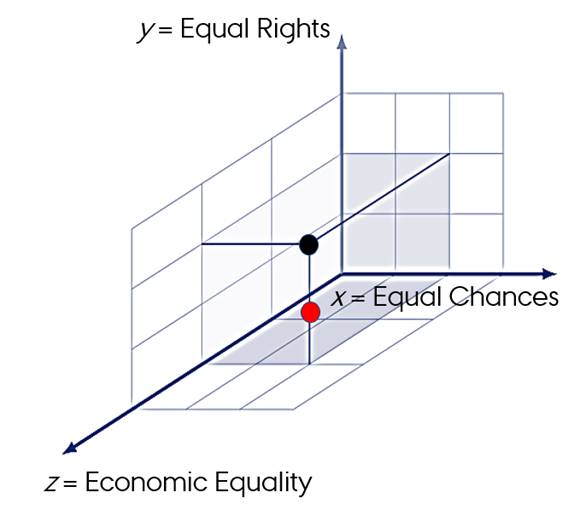Varieties of Egalitarianism: Mapping the Politics of Inequality with Online Crowdcoding (Emmy Noether Group)
Project Team
Dr. Alexander Horn (Head of Project)
Dr. Martin Haselmayer (Postdoctoral Researcher)
Simon Rittershaus (Doctoral Researcher)
Dr. Jonathan Klüser (Associated Researcher, University of Zurich)
Franziska Windisch (Associated Researcher)
Project Description
Background
Despite the undisputed societal and political significance of economic inequality, we still lack knowledge about its political determinants – especially regarding the role of political parties. While we have learnt a lot about what voters think about (in)equality, we do not know how parties conceive of (in)equality and how this affects policy choices and inequalities. Given the pivotal role assigned to parties in today’s representative democracies, this is a startling omission. To address this gap, the research group Varieties of Egalitarianism draws on the wisdom of the (online) crowd to map parties’ concepts of equality and to assess how these concepts affect policy choices and inequality outcomes.

Project Aims
The first aim of the project is thus to gather data on equality concepts of parties in ten OECD countries since 1980. For instance, parties could focus on equal chances, equal rights, or economic equality. The categorization is done via online crowdcoding of political texts. Every text fragment is repeatedly coded by multiple crowd coders until an agreement threshold is reached – following the idea of the wisdom of the crowd, according to which the aggregation of independent judgments by non-experts can match or outperform real experts. Previous work by the group leader has looked at the scope conditions under which the results of the crowd can match the results of experts for complex tasks. Based on 5000 test questions calibrated by the research group, the category scheme consisting of various equality concepts will be “scaled up” to 1 million coder decisions in a reproducible manner.
This interplay of the crowd and experts will result in a database that allows the research group and the interested public to compare dominant equality concepts between parties, countries, and over time. For instance, we will test the assumption that (certain) parties have abandoned material equity.
The second aim is to find out how differences in equality concepts affect political decisions and – eventually – a broad set of (mostly economic) inequality outcomes. We draw on regression analyses and case studies in politically and economically diverse settings to decipher distinct pathways to (in)equality; i.e., different combinations of equality concepts, policy profiles, and inequality patterns.
Disciplines
Political Science
Starting Date
1 July 2020
Emmy Noether Programme
The Emmy Noether Programme of the German Research Foundation (DFG) gives exceptionally qualified early career researchers the chance to qualify for the post of professor at a university by leading an independent junior research group for a period of six years. The programme is open to postdocs and junior professors with temporary contracts who are at an early stage in their research careers. Find out more about the program on the DFG website.
Literature
Groundwork
Feasibility Study/Pilot:
Horn, Alexander. 2019. Can the Online-Crowd match Real Expert Judgments? How Task Complexity and Coder Location Affect the Validity of Crowd-Coded Data. European Journal of Political Research 58:1, 236-247.
https://ejpr.onlinelibrary.wiley.com/doi/full/10.1111/1475-6765.12278
